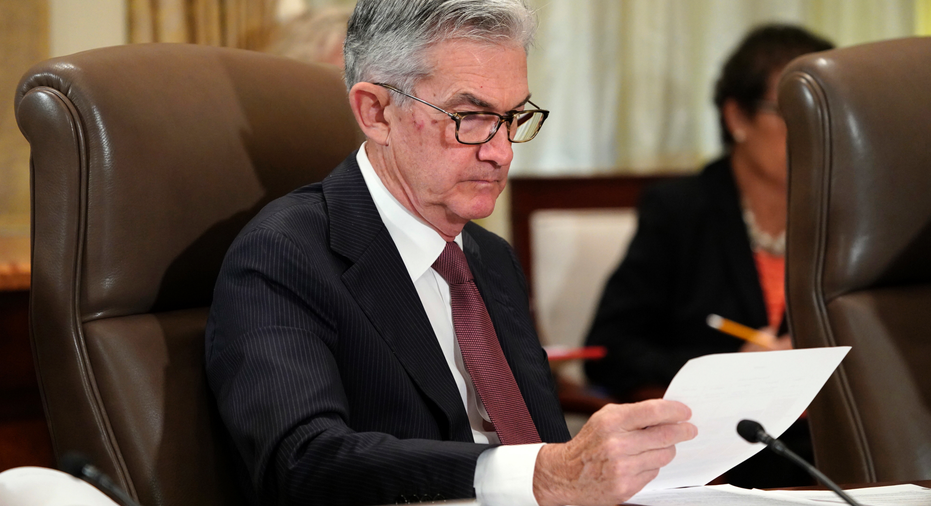Market to parse Powell words for clues to Fed's future hikes

WASHINGTON – Is the Federal Reserve considering a pullback in its interest rate hikes?
Chairman Jerome Powell's recent observations have suggested that while the U.S. economy remains on firm footing it also faces an array of risks, including a slowing global economy.
Powell's comments and similar remarks from other Fed officials have raised hopes in financial markets that the central bank may be close to slowing its rate increases, which have gradually raised borrowing costs for consumers and businesses. Any such slowdown — or pause — in its rate hikes would be welcome news for a stock market that has been battered by fears that the Fed's continued credit tightening could end the long bull market.
On Wednesday, Powell may reveal more about his thinking when he speaks to the Economic Club of New York.
In an appearance earlier this month, Powell said he was generally pleased with the state of the economy, citing strong annual economic growth above 3 percent and unemployment at a near five-decade low of 3.7 percent. Those trends, he said, were coinciding with inflation remaining "right on target" at the Fed's goal of 2 percent annual price increases.
But Powell also noted a number of looming risks, including the slowdown in global growth and the fading economic benefits of the tax cuts and government spending boost that took effect this year as well as the cumulative effect of the Fed's own rate hikes. Many economists also worry about potential economic damage caused by President Donald Trump's trade conflicts with China and other nations.
For his part, Trump has sought repeatedly to shift blame for any economic troubles to the Fed and its rate increases. In an interview Tuesday with the Washington Post, the president complained bluntly and at length about Powell, who was Trump's hand-picked choice to lead the Fed.
"So far, I'm not even a little bit happy with my selection of Jay," Trump said, using Powell's nickname. "Not even a little bit. And I'm not blaming anybody, but I'm just telling you I think that the Fed is way off-base with what they're doing."
Trump argued that the Fed's policies were damaging the economy and pointed to the recent stock market declines and General Motors' announcement Monday that it would cut up to 14,000 workers in North America and put five plants up for possible closure.
"I'm doing deals, and I'm not being accommodated by the Fed," Trump said. "They're making a mistake because I have a gut, and my gut tells me more sometimes than anybody else's brain can ever tell me."
After keeping rates at a record low near zero for seven years, the Fed three years ago began gradually raising rates, including three hikes this year. Those increases have raised its benchmark rate to a still-historically-low range of 2 percent to 2.25 percent.
Higher interest rates tend to slow economic growth over time as well as pressure stock prices. For those reasons, this year's hikes have made the Fed the target of unusual public attacks from Trump — criticism that has accelerated with the past month's sharp declines in the stock market. Trump has complained that the Fed is threatening to undo the economic stimulus being provided by the tax cuts and that its rate hikes are unnecessary because inflation has remained relatively low.
In its most recent projections, the Fed forecast that it would raise rates in December for the fourth time this year, followed by three more hikes in 2019.
Analysts think a rate hike next month is all but certain, possibly in part because they think the Fed doesn't want to appear to be bowing to pressure from Trump. But economists say three rate increases for next year are beginning to look less certain.
"When you see that economic growth is decelerating and financial markets are going through significant turbulence not only in the United States but globally, I think a rate pause would be a good idea," said Sung Won Sohn, chief economist at SS Economics.
"I would not be surprised if they go with one more hike in December and then pause indefinitely to see what happens to the economy," Sohn said.
Other Fed watchers still expect at least one or two rate increases in 2019 before the central bank pauses to observe how the economy is performing.
In a speech Tuesday, Vice Chairman Richard Clarida suggested that the Fed would continue to strive to be "data dependent" by using the latest readings on the economy "with a healthy dose of judgment and humility" to determine its interest-rate policy.



















